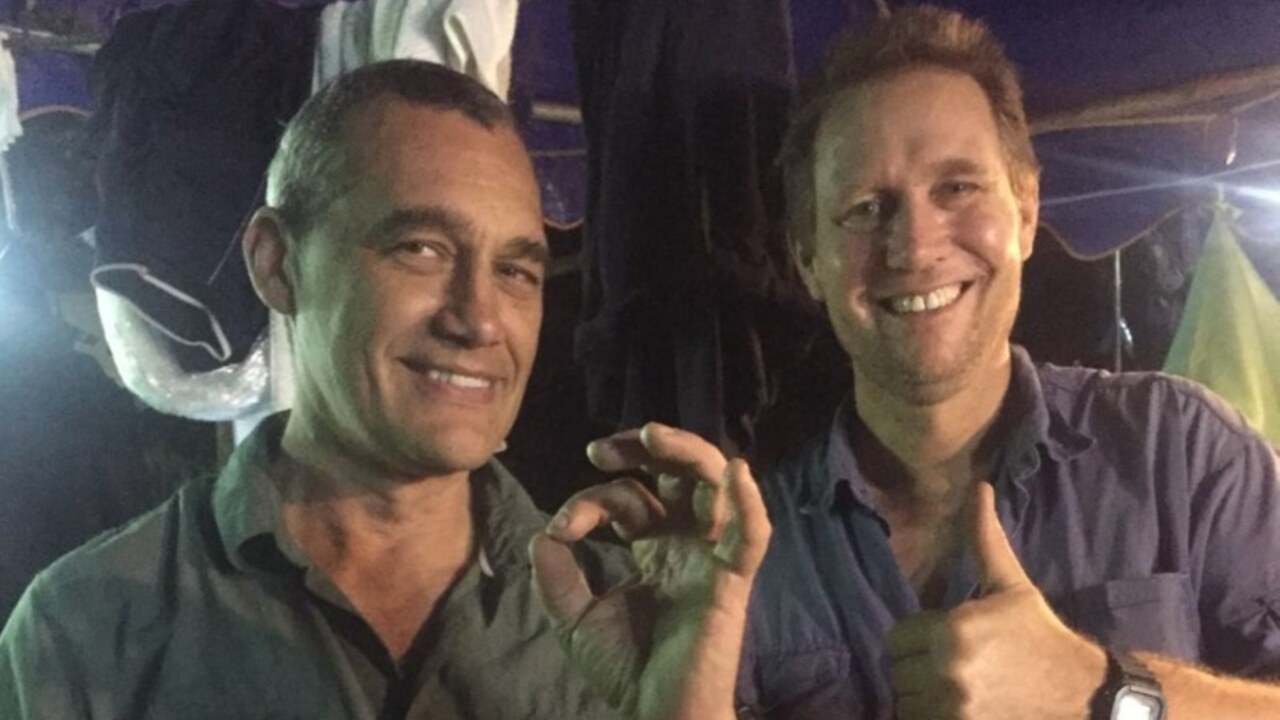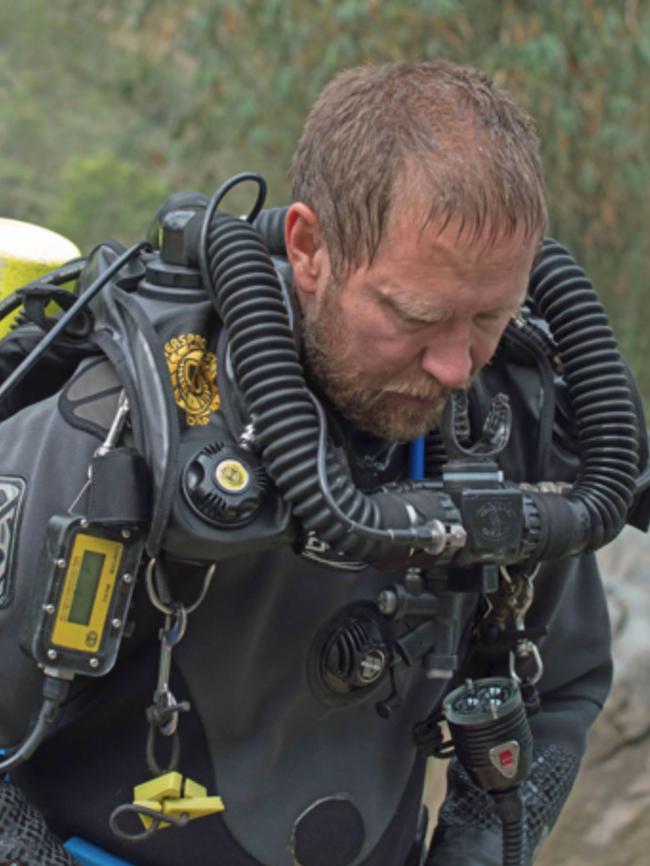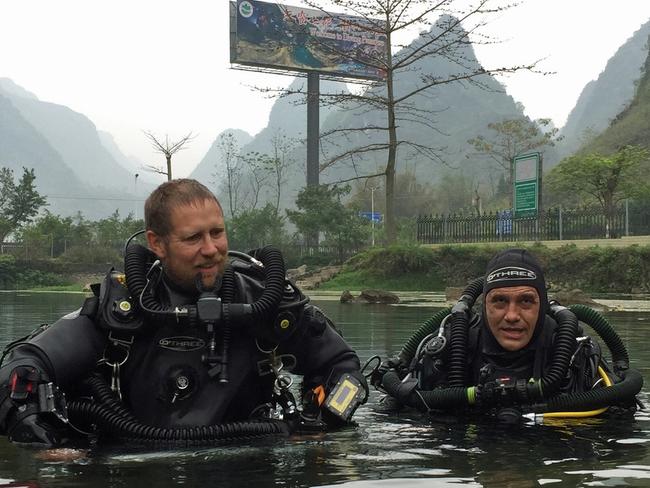Patrick Carlyon: Thai cave heroics have echoes of VC dignity
LIKE Victoria Cross recipients, Australian cave diving expert Dr Richard Harris is not about being recognised. He is understated. Reluctant. And probably doomed to be haunted by a public glory he never wanted, writes Patrick Carlyon.

Opinion
Don't miss out on the headlines from Opinion. Followed categories will be added to My News.
THREE Victoria Cross recipients stood in the shadows of the Lone Pine obelisk, the white monument blazing in the late afternoon Gallipoli sun, to take questions about bravery. Except that the men — Daniel Keighran, Mark Donaldson and Keith Payne — didn’t want to talk about heroics at all.
What comes to mind, a few years later, are the ghosts of that “bastard place”, Australia’s biggest military graveyard, where the lost souls seem to rise after dark to the chorus of cicadas.
Keighran shone with country boy charm. Payne seemed tired, as anyone would after shouldering the burden of VC glory alone for many years since receiving the award in 1969.
DOCTOR’S ACCENT, MANNER HELPED THAI BOYS
FATHER OF CAVE DIVE RESCUER DIES
The men did not care for personal glories. Looking back, such questions were entirely misplaced, naive if not offensive. Payne reiterated the sadness of war by scuffing the ground with his shoe.
The scene of the men — and their shared load of national adulation — seemed vivid when talk erupted of Dr Richard Harris, and his diving mate, Craig Challen, being recognised with the civilian equivalent of the Victoria Cross — the Cross of Valour.
How could the divers not be recognised with every available honour? Their valour and determination is unquestioned.

Harris’s description of the Thai cave rescue, as he explained to Prime Minister Malcolm Turnbull, could be dropped straight into his award citation: “You’re following the (guide) line with your hand and you basically might as well have your eyes closed with a small boy being cradled in your arms and feeling your way through rocks and posting yourself sideways through little holes.”
Harris has already exhibited traits that mark him for Australian greatness. Both his courage and his motivations are long recognised by the select few who can fully grasp his expertise under extreme peril.
Harris has never chased a media camera. His deeds in Thailand were not about him at all, he has made clear, in perpetuating the spirit of almost all Victoria Cross recipients who struggled with — if not plain avoided — the demands that they extol their apparent glories to the adoring crowds. Among them were Keith Dunstan, who survived the underground butchery of Lone Pine, and never spoke to his children about of the little bronze medal kept in the cupboard under the stairs.
At the site of Dunstan’s lifelong trauma, a century later in 2015, Keighran wanted to talk about growing up in the backblocks with no electricity. He was back in Australia from service in Afghanistan, and working down the mines, when he was notified that he would be a “hero” for life.
Payne chatted about a conundrum. Many official Australian heroes want to forget what everyone wants them to talk about.

For them, as a well as Donaldson, there was little place for bravery in the choices that led to their awards. They just wanted to help their mates. They wore their VC honours as duties to be fulfilled, it seemed. They were not promoting themselves; there were no TV contracts or book deals. It wasn’t about them, but rather the memories of others.
VC recipients, like Harris, tell stories tinged in tragedy. Their tales are not about glory and victory but loss and trauma. Harris’s back story includes the time in 2011 when he extracted the body of his friend Agnes Milowka from an underwater cave near Mount Gambier.
Amid the excitement of the rescue this week was also the outrageous timing of his father’s death, at about the same time the final group of Thai boys was extracted from the cave.
Harris seems a lot like those VC recipients. It’s not about being recognised. Like the most authentic of Australian heroes, he is understated. Reluctant. And probably doomed to be haunted by a public glory he never wanted.
Patrick Carlyon is a Herald Sun columnist


